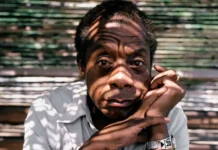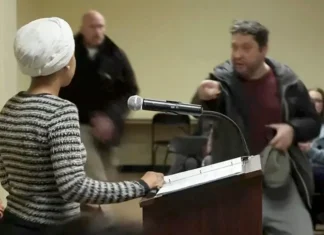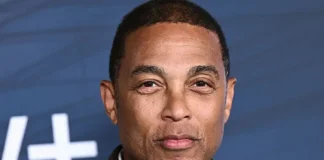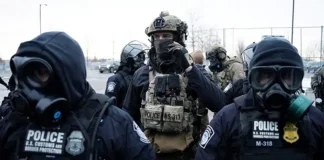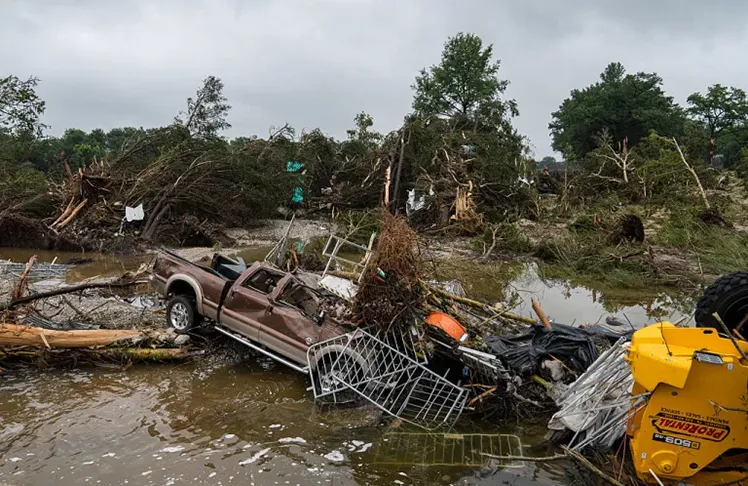
by Mustafa Ali
This week, water did what it always does. It moved — fast, furious, and unforgiving. In Texas, it tore through homes like a thief in the night. In New Mexico, it swallowed roads and memory alike. In North Carolina, it filled lungs that once screamed with laughter. The death toll isn’t just measured in numbers. It’s carved into the land, etched in the grief of survivors, and soaked into the silence of those who never made it out.
Unfortunately, we still ask the same tired questions after each disaster, as if surprise is an excuse for inaction. How did this happen? How could this be? But deep down, we already know the answer. The floods are not freak occurrences. They are the price tag of delay, denial, and political convenience. They’re the result of pretending nature’s warnings are just background noise.
We are not in an age of natural disasters — we are in an age of unnatural ignorance.
Let’s be brutally honest: we have altered the atmosphere. We’ve thickened the sky with our pollution, heated the oceans, and stripped the land bare for profit. When we turned wetlands into parking lots and rivers into sewage drains, we didn’t just build cities — we built graves. We have made the climate a loaded gun, and now we gasp every time it fires.
The 500-year and 1,000-year floods are now happening every few years.
What happened in Texas wasn’t just rainfall. It was revenge. Not by a vengeful god or mystical force, but by a system that’s been pushed beyond its limits. As the climate crisis grows, we are seeing clouds holding more water than they were supposed to. That soil can’t absorb what it once could. That creeks become monsters not because they want to, but because they have no choice.
And here’s the hard truth: this is just the beginning. The 500-year and 1,000-year floods are now happening every few years. We are now facing a deadly new reality. We no longer have the luxury of calling this “extreme weather.” It’s just weather now. And if we don’t evolve, survival will become the exception, not the rule.
But change doesn’t come easily in a country addicted to comfort.
Every delay is another obituary.
We scroll past flooded towns while sipping coffee made from water that, in some parts of the world, is more valuable than gold. We elect leaders who kiss the ring of fossil fuel CEOs while entire communities drown. We let misinformation bloom like algae in a warming lake — thick, toxic, and choking the life beneath it.
Are we willing to evolve to save lives from floods? That’s the question staring us down like a rising tide. Evolution here doesn’t mean growing gills or building higher dams — it means something far more radical. It means rethinking what we value. It means making science sacred again. It means investing in infrastructure that puts people before profits, and listening to Indigenous communities who’ve known how to live in balance with nature for centuries.
Every delay is another obituary.
It means refusing to call flooded trailer parks in Ingram, Texas, a tragedy without also calling out the policy decisions that made those families vulnerable in the first place. It means recognizing that climate justice and racial justice are braided together like roots beneath a cypress tree.
Because the floods don’t discriminate, but the systems that leave people to drown do.
Evolving means we build not just for today, but for the storms of tomorrow. We need climate-resilient housing, early warning systems that reach every ZIP code, and elected officials who don’t wait for polling numbers to rise before they act. We need to stop pretending adaptation is optional.
Every delay is another obituary.
And for those who still deny what’s happening — for those who claim it’s too expensive to address climate change — I ask: how expensive is a child’s life? How costly is the sound of a mother’s scream echoing through waterlogged ruins?
We are not powerless. We are just paralyzed by convenience.
But history remembers the moments when we chose to evolve. This is our transformational moment as an American family, when we can sacrifice a small bit of comfort for collective survival. When we finally see a threat not as an end, but as a call to something higher. The floodwaters will recede, but the question will remain: Did we rise, or did we retreat?
The clock is dripping. The levees are learning our names. And the only thing left to decide is this:
Will we keep drowning in denial?
Or will we finally learn to breathe as if every life depends on it?
Because it does.
Dr. Mustafa Ali is a poet, thought leader, strategist, policymaker, and activist committed to justice and equity. He is the founder of The Revitalization Strategies, a business focused on moving our most vulnerable communities from “surviving to thriving.” Ali was previously the senior vice president for the Hip Hop Caucus, a national nonprofit and non-partisan organization that connects the hip-hop community to the civic process to build power and create positive change.



